2017, Winnipeg, Manitoba, Canada

Liam DeLeon from Maples Met School was awarded an environmental prize for creating a simple awareness video for youth on the achievable steps they can take to help keep their watershed healthy.
“I want to target kids that are 13 and under so that they will be able to start recycling at a very young age. I believe that this idea will make a very positive change to our environment, because it will really bring people together in our community.”
Liam’s video was very well received at the Caring for our Watersheds finals, and he is excited to present it at various educational events happening in his community.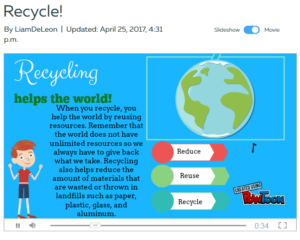
“To expand the knowledge of my community, I have made plans to present to the local schools and to start with the students and the teachers. I want to visit Elementary Schools around my area where I can showcase my video to inform the citizens of Winnipeg about the problem in our watershed and how we can all come together and solve it.”
You can view Liam’s presentation here: https://www.powtoon.com/online-presentation/dNIvgzPgSXd/?mode=presentation#/

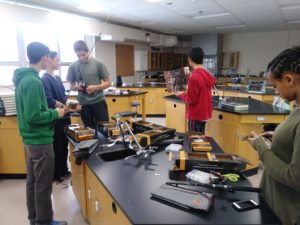 tudents at Elmwood High School in Winnipeg, Manitoba are passionate about sustainability! Their sustainability team has come up with a “Rods and Reels” program that aims to educate youth about sustainable fishing practices and how this can impact their environment and watershed. Students will learn skills such as how to properly debarb a hook, the importance of why, as well as conservation limits and how this links to overall watershed health. This lesson will culminate in a class fishing trip so they can learn practicing proper fishing etiquette and connect with nature.
tudents at Elmwood High School in Winnipeg, Manitoba are passionate about sustainability! Their sustainability team has come up with a “Rods and Reels” program that aims to educate youth about sustainable fishing practices and how this can impact their environment and watershed. Students will learn skills such as how to properly debarb a hook, the importance of why, as well as conservation limits and how this links to overall watershed health. This lesson will culminate in a class fishing trip so they can learn practicing proper fishing etiquette and connect with nature.

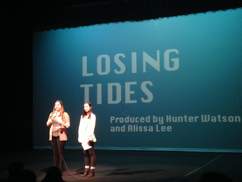 meaning. Some dances will deal with the pollution side to our effect on our watersheds, some will focus on how our watersheds could and should look like all reflecting behind the dancer.
meaning. Some dances will deal with the pollution side to our effect on our watersheds, some will focus on how our watersheds could and should look like all reflecting behind the dancer. In researching her Caring for our Watersheds project, Katelyn discovered a starting fact about her school’s use of dry erase whiteboard markers; “My school goes through approximately 1570 markers within a 10 month period.” That’s 1570 markers going in the trash each year. Given that these markers “are plastic, toxic, and non-recyclable” Katelyn saw the need to make a change to “prevent and lower the amount of chemicals making their way into the Lake Winnipeg watershed.”
In researching her Caring for our Watersheds project, Katelyn discovered a starting fact about her school’s use of dry erase whiteboard markers; “My school goes through approximately 1570 markers within a 10 month period.” That’s 1570 markers going in the trash each year. Given that these markers “are plastic, toxic, and non-recyclable” Katelyn saw the need to make a change to “prevent and lower the amount of chemicals making their way into the Lake Winnipeg watershed.”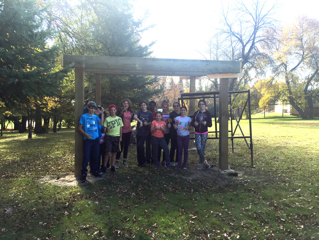 have poor agricultural capabilities and much of the Southern portion of the Cypress River Watershed is considered moderately to severely at risk of soil and bank erosion.
have poor agricultural capabilities and much of the Southern portion of the Cypress River Watershed is considered moderately to severely at risk of soil and bank erosion.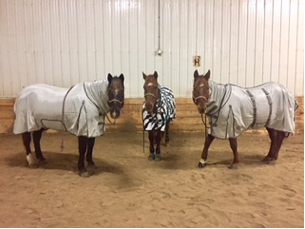
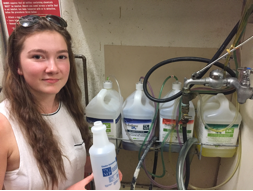
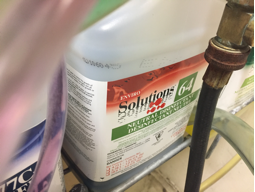 with, I have done the necessary research and I have determined the cost and quantity that my school would need for cleaning. By changing into an eco-friendly product our watershed will benefit and the water quality will improve because there is less chemicals flowing into the watershed.”
with, I have done the necessary research and I have determined the cost and quantity that my school would need for cleaning. By changing into an eco-friendly product our watershed will benefit and the water quality will improve because there is less chemicals flowing into the watershed.”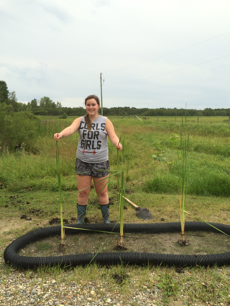
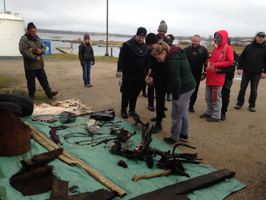
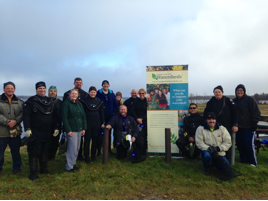 community. The marine life will have more areas to lay eggs, less debris on the lake floor, and have more plant life for the fish to feed on.”
community. The marine life will have more areas to lay eggs, less debris on the lake floor, and have more plant life for the fish to feed on.”